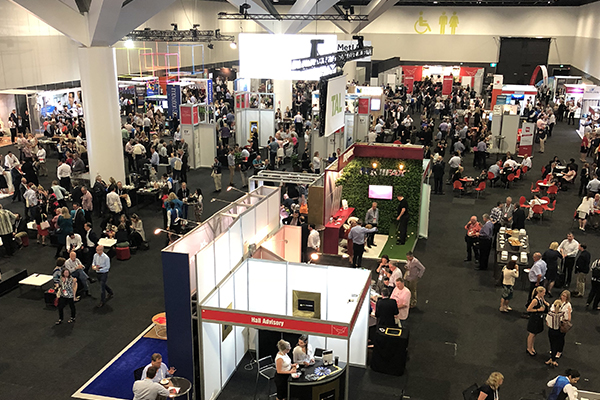February 2020 will be the stroke of midnight for open banking in Australia. From this time forward, banking, and in the longer-term the broader Australian economy, will be transformed as the control of personal financial data moves from data holders to consumers. But despite a tremendous amount of work by government and other stakeholders to build a robust and secure framework, whether open banking is seen by consumers as a trick or treat may hinge on effective communication.
Open banking is the sharing of personal financial data between consumers and financial institutions. It has been presented as everything from an apocalypse for banks, with fintech beasts ready to strike, through to a wonderful new dawn for consumers.
In May 2017, the Federal Government initiated a review into the potential introduction of open banking in Australia after its adoption in the UK, Japan and other countries. A year later, all recommendations from the review were accepted. These included the introduction of open banking from February 2020 starting with the big four banks, with eventual implementation across the entire banking sector, and longer term across other industries such as energy and telecommunications.
Importantly the recommendations also included the establishment of a consumer data right (CDR). The CDR enshrines in law that consumers own their data, thus giving Australians the ability to obtain their financial data from institutions they currently deal with and share it with other providers.
CDR legislation was passed by parliament in August and the big four banks, as well as other institutions who want to participate in open banking from the outset, are now preparing for February 2020 when customers will be able to access the first tranche of their financial data.
The CDR is unique to Australia’s open banking model and paves the way for services that are tremendously rich in personalisation. People increasingly want products and services that are highly tailored to them and open banking promises to be a thriller in this regard.
From the overseas experience of open banking, we can see it has led to innovation in banking services and the emergence of new solutions. Open banking was introduced into the UK at the beginning of 2018, and it has been estimated that it could realise £18 billion in value a year for consumers and SMEs. However, take-up has been hampered by a lack of customer communication and education, and it is broadly viewed that much work still needs to be done in this area.
Publics are also highly sceptical about the security aspects of open banking with many spooked by recent high-profile global data breaches.
Compounding this for Australia is a backdrop of distrust of financial institutions as the media continues to recall ‘horror’ stories that emerged during the Hayne Royal Commission. Also, the CDR presents additional complexity to effectively selling the Australian open banking story to a wary general public.
It is likely Australians will need to be convinced about the merits of open banking and then guided as to how to effectively leverage the CDR. The onus will be on open banking providers to play this role and to earn an open banking ‘social license’.
Open banking – and particularly the CDR – presents a great opportunity for Australian financial institutions, fintechs and consumers alike. But the key to success will be to ensure people understand and embrace open banking rather than seeing it as something scary lurking at the front door. It will be up to Australian financial institutions and fintechs to get stakeholder communication about open banking right, starting way before midnight.
Category: News
It’s a wrap – Honner’s quarterly media roundup (Q319)
Seven West Media changes CEOs, reports large loss, goes hunting for acquisitions
The precarious state of free-to-air TV in Australia was highlighted by Seven West Media’s announcement that it recorded a full year loss of A$444.4 million. The loss was due to a dramatic write down in the Seven network’s TV licenses in the wake of recent advertising market declines.
The announcement came just days after new CEO James Warburton came on board following the surprise resignation of CEO Tim Worner. Warbuton said FY19 was a tough year in the economy and advertising markets, which impacted Seven West Media’s performance.
“But we have incredibly strong assets, and our focus moving forward is to speed up the rate of transformation while exploring opportunities for growth in our core and adjacent markets,” he said.
“We will be a hunter and explore M&A opportunities in both traditional media and non-traditional adjacencies that are positive for our shareholders.”
Despite the significant loss, Seven delivered a 13th consecutive year of ratings leadership in Australia. The network was also the number one network in the advertising demographic of people aged 25-54 across the day.
Nine bids for Macquarie Media

Elsewhere, Nine is continuing its acquisitive streak, announcing a bid to take the remaining stake in the Macquarie Radio business it doesn’t already own.
Nine has made an offer to acquire the remaining 45.5 per cent stake in Macquarie Media, which it gained majority ownership of through the Fairfax Media merger in late 2018.
The move would see Nine gain the Macquarie Radio business, which includes stations 2GB, 3AW, 4BC, 6PR and Macquarie Sports Radio.
Macquarie Media responded by recommending its shareholders accept the $1.46 per share off-market bid.
Former Sky News bureau chief launches Ticker TV
Former Sky News Bureau Chief Ahron Young has launched Ticker TV, an online business, technology and aviation channel.
Breaking news and highlights will appear across Ticker’s social channels, while a paid subscription model costing “a dollar a week” will offer users unlimited access to live programming via an app. Ticker will not feature ads, but programs will instead be sponsored.
New regional publication takes on Antony Catalano’s Newcastle HeraldIn regional media news, a new online only publication from News Ltd. is taking on the Newcastle Herald, one of the key publications acquired by Anthony Catalano in his purchase of australian community newspapers in April. The digital masthead Newcastle News is the latest title in a strategy by News Corp Australia to grow local audiences.
Rainmaker expands into ESG

Rainmaker Group, publisher of Financial Standard, has acquired sustainable investment specialist publications The Sustainability Report and Audacious Investing.
Effective October 1, Rachel Alembakis, founder of both publications, will join Rainmaker Group as editor of the titles.
Commenting on the acquisition, group managing director Christopher Page said the business had been looking for the right opportunity to expand into the ESG space:
“We have been following the sector’s development because of its growing importance to Financial Standard readers and Rainmaker Live’s diverse client base of institutional and wholesale investors,” he said.
The acquisition comes six months after Rainmaker Group purchased Money magazine, the longest-running personal finance publication in Australia, from Bauer Media.
Tech giants reject plan for fake news code of conduct

The industry body representing tech giants Google, Facebook and Twitter has rejected proposals for an industry code of conduct on fake news, warning that the recommendation would turn Australia’s media regulator into the truth police.
The Digital Industry Group made the warning in a submission to the competition regulator’s digital platforms review, arguing against eight of its 23 recommendations.
The Australian Competition and Consumer Commission has recommended new codes of practice to ensure fairness and transparency in the digital advertising market and to govern handling of complaints about inaccurate information, to be enforced by an independent regulator such as the Australian Communications and Media Authority.
But Digi has argued against a “one-size-fits-all” code, arguing that what might be considered appropriate in one forum – such as the removal of a public post containing disinformation – “may be considered as intrusive and inappropriate on a private messaging platform”.
Google changes the way it presents news
Original news reporting will get new prominence and stay at the top of searches longer as Google addresses a major concern of publishers and reporters that their work was being swamped by copycats.
The changes follow sustained criticism from traditional media organisations that helped spark the Australian Competition & Consumer Commission inquiry into digital platforms.
Insights & Opinion

Australians young and old are consuming much more video, according to Zenith’s Online Video Forecasts 2019 report. The average person will spend 100 minutes each day watching online video in 2021, up from 84 minutes this year, the report found. That’s the equivalent of watching 25 continuous days of video in 2021.
Takeup of newer media tech is also rising, with nearly one in five Australians now owning their own smart speaker, according to research from Nielson.
Ever wonder why you never got a reply back from a journalist? Overt marketing and irrelevant content are the two key reasons why journalists avoid PR emails, according to PR Newswire’s recent Asia Pacific Media Survey.
Most people consuming information online in Australia take no steps to verify its accuracy, writes Katharine Murphy, political editor at The Guardian.
Amanda Meade, also at The Guardian, analyses the role that philanthropy could play in changing the journalistic climate in Australia.
Quotable Quotes

“We have always supposed we have a free press. That belief has been shaken to the core in recent times.” – ABC Chair Ita Buttrose told the New South Wales Council for Civil Liberties, adding that police raids on the ABC’s Sydney offices and the home of a News Corp journalist had “tarnished” Australia’s standing.
“For us it’s really declaring that we’re open for business.” – Seven West Media CEO James Warburton on his plans to seek out a partner to launch a streaming business.
Movers & Shakers

Sarah-Jane Tasker has been appointed Business Editor at The Western Australian. Sarah, who started her career at The Sunday Times in Perth, has spent the past 11 years as a senior business writer at The Australian.
James Hennessy has been appointed Editor at Business Insider. James was formerly Deputy Editor at Pedestrian Group.
Ben Butler has moved from The Australian to the The Guardian Australia as Senior Business Reporter.
Rachel Alembakis, founder of The Sustainability Report and Audacious Investing, is joining the new owner of the publications, Rainmaker Group, as editor of the two titles.
Simon Thomsen is the new Editor of Startup Daily. He was previously Associate Editor of Business Insider Australia.
Hannah Wootton has moved from Money Management to the Australian Financial Review, where she is reporting on professional services and legal affairs.
Aleks Vickovich has moved from Business Insider to the Australian Financial Review, where he covers banking, wealth management and financial services.
Grace Ormsby left Lawyers Weekly and started at Momentum Media sister publication Nest Egg.
Jassmyn Goh has returned Money Management as a News Editor after working as a financial journalist in London.
Kylie Purcell from Your Money has joined Finder as Investment Editor.
Karina Barrymore has left News Corp to pursue freelance writing and editing, including authoring crime novels. Her new novel Where the Truth Lies, published by Simon & Schuster, is due out in March 2020.
Effie Zahos and Maria Bekiaris have started at Canstar, as Editor-at-Large and Editorial Campaigns Manager respectively after leaving Money Magazine.
Elise Shaw, formerly Digital Content Editor at Commonwealth Bank, has been appointed Digital News Producer at The Australian.
Eliza Bavin, formerly a producer at Your Money, has started at Financial Standard.
Laura Daquino has moved from InvestSMART to Ticker TV, the new online channel started by former Sky News Bureau Chief Ahron Young.
Malavika Santhebennur joined Momentum Media as features editor for the mortgage titles The Adviser and Mortgage Business.
Cliona O’Dowd is back from maternity leave covering financial services and superannuation at The Australian.
Kristi Cheng has left Financial Standard, where she held a journalist title.
Sarah Kendell joined as SMSF Adviser as Deputy Editor.
Lachlan Maddock joined Investor Daily as a reporter.
Elliot Hastie has left Momentum Media, where he wrote across ifa, Investor Daily, Fintech Business and Wellness Daily, and is now writing for D’Marge.
Nicholas Grove is taking a break after leaving Livewire.
Hrishikesh Joshi has left SelfManagedSuper magazine
Pat Commins has left Australian Financial Review and is moving to The Australian.
Mia Kwok has left ASFA, where she wrote for Superfunds magazine.
Jason Clout left the Australian Financial Review where he was special reports editor. Mark Eggleton will take over the role.
It’s a wrap – Honner’s quarterly media roundup (Q119)
WHAT’S NEWS?
Some good news for regional newspapers
Nine Entertainment’s sale of 160 regional and rural newspapers to former Domain boss Antony Catalano and Thorney Investment Group raised hopes of better times ahead for regional publishing. The $115 million acquisition of Australian Community Newspapers, including The Newcastle Herald and The Canberra Times, is the first major divestment by Nine after it acquired Fairfax last year.
Catalano says he wants to “grow the business, not shrink it to greatness” , hopes to avoid shutting any newspaper, and doesn’t expect to shed staff, although acknowledging there is “some stuff” in the portfolio that doesn’t make sense. He’s flagged plans to invest heavily in seven of ACM’s larger papers – The Newcastle Herald, The Canberra Times, The Illawarra Mercury, The Border Mail, The Examiner in Launceston, The Ballarat Courier, and The Bendigo Advertiser – and said he wants to return the Canberra Times to producing its own political news and having a greater role in national debate.

Nine brings the subs back
After freeing itself of its regional newspapers assets, a more focused and cashed up Nine Entertainment announced plans to hire 24 sub editors at its major newspapers The Sydney Morning Herald, The Age and The Australian Financial Review – ending an outsourcing arrangement with Pagemasters introduced by Fairfax in 2011.
James Chessell, editor of The Age and Sydney Morning Herald, said the decision reflects the “strong financial position” of the mastheads and that having all aspects of editorial production in-house will help increase the quality of their journalism.

End of days for Your Money
The news isn’t so rosy in all parts of the media, however. It’s been a short life for the Nine and News Corp joint venture Your Money, which closed on May 17, highlighting the challenges of capturing the attention of self-managed super fund trustees.
The venture had hoped to capitalise on the rise of SMSFs and growing interest in personal finance. However, the JV partners said Your Money failed to attract the level of audience and advertising needed to justify continuing the venture.
Nine and News will look to redeploy staff from the JV within their organisations.

Printing error gives Tele readers a new perspective
News Corp. could be forgiven for rethinking its printing arrangements after pages from its arch- rival The Sydney Morning Herald mistakenly appeared in The Daily Telegraph.
Readers of the tabloid were treated to unusually progressive views including letters calling for more action on climate change and highlighting a need to reform Anzac Day.
After some confusion, it emerged that a printing error at a western Sydney printing plant had resulted in the content of the two mastheads getting mixed up. The two papers struck a deal last year to be printed at the same location in order to save costs.
Good morning readers, today @dailytelegraph printed 2 pages from The Sydney Morning Herald in some editions. Both papers share the same printing facility in Sydney’s west and the error happened during the production process. We apologise for any confusion this has caused. pic.twitter.com/pzgseljlmh
— The Daily Telegraph (@dailytelegraph) April 24, 2019
Rainmaker snaps up Money magazine
Bauer Media sold personal finance magazine Money to Rainmaker, saying it wanted to focus on ‘core consumer brands’. The German company publishes several women’s magazines in Australia including Women’s Weekly and Woman’s Day.
Rainmaker, which is primarily a financial research house and also owns Financial Standard and some smaller B2B titles, said the acquisition fits its longer-term objective of growing its consumer media platform.
Investment Magazine phases out print
Investment Magazine’s May edition will be the last one in print, as it moves to online only. The frequency of the newsletter will be maintained – twice a week on Tuesdays and Thursdays.

Apple’s news app cast as a helping hand for journalism
Apple Inc launched its news subscription service Apple News+, portraying it as part of its “commitment to supporting quality journalism”. Launch partners include The Wall Street Journal, the Los Angeles Times, Vogue, National Geographic Magazine, People and ELLE. However, readers Down Under will have to wait. Apple News+ has launched in the US and Canada so far, with launches in Australia and the UK expected later in the year.
Meanwhile, Apple has also unveiled its own TV streaming service and credit card as it seeks to become an entertainment company and financial services firm, moving beyond its incarnation as a tech firm that makes iPhones, iPads and MacBooks.
INSIGHTS & OPINION

Can Apple News kill fake news and save journalism?, asks Danial Eran Dilger at Apple Insider
Newspapers can thrive if they go back to their community roots, says Rachel Matthews, journalism lecturer at Coventry University.
The post Google, Facebook era could be a golden age for media, suggests John McDuling at The Sydney Morning Herald.
QUOTABLE QUOTES

“They are morally bankrupt pathological liars who enable genocide (Myanmar), facilitate foreign undermining of democratic institutions. – New Zealand’s privacy commissioner, John Edwards, lambasting Facebook over its response to the Christchurch terrorist attack.
“If they can write an algorithm to make sure that the ads they want you to see can appear on your mobile phone, then I’m quite confident they can write an algorithm to screen out hate content on social media platforms.” – Australian Prime Minister Scott Morrison calling for a crackdown on social media companies after the Christchurch attack.
“My experience in the past is to protect jobs. I’ve got a history of hiring, not firing. I want to grow the business, not shrink it to greatness. Not my style.” – Antony Catalano after acquiring Australian Community Media.
MOVERS & SHAKERS

Effie Zahos and Susan Hely left Money Magazine following its acquisition from Bauer Media by Rainmaker. Michelle Baltazar, current executive director of media at Rainmaker publication Financial Standard, will step into the editor-in-chief role while Financial Standard editor Darren Snyder will move into the managing editor role at Money Magazine.
Zahos, who recently published A Real Girl’s Guide to Money, is staying at Bauer Media in a new role of finance editor, commentator and financial literacy campaigner.
Jamie Williamson, associate editor of Financial Standard’s magazine FS Advice, will move to the role of editor at Financial Standard. Elizabeth McArthur has also started working at Financial Standard as a journalist.
Aleks Vickovich, former digital editor of the recently closed Your Money, has a new job as news editor of the Australian edition of Business Insider.
Laura Drew has joined Money Management as a senior reporter, having previously worked as deputy news editor at Investment Week in London. Drew is replacing Anastasia Santoreneos who has left Money Management to work as a finance producer with Yahoo Finance.
Stephanie Aikins left Nest Egg/Momentum Media and is now freelancing for travel magazines. She has been replaced by Cameron Micallef from AAP Medianet.
Alice Uribe, editor of Investment Magazine, has left the publication and is moving to US. Elizabeth Fry has taken over as editor of the publication.
Gina Baldassarre, editor of Startup Daily, has left to take up the role of content and communications manager at Qantas Super.
Chris Dastoor started as a journalist at Money Management.
Jackie Edwards of Bloomberg is moving into stock reporting, having previously covered equity markets. Matthew Burgess is now covering superannuation at Bloomberg and has moved to Melbourne.
Scott Murdoch, Data Room co-editor at The Australian, has left the newspaper.
Hrishikesh Joshi, started working as a reporter at Selfmanagedsuper magazine, having previously worked as a correspondent for Business Standard in India.
Tony Kaye has moved on from his role as editor of InvestSMART to start a new position as financial writer with Vanguard Investments, based in Melbourne.
Mia Kwok has started in a new role as Communications and Content Manager at the Association of Superannuation Funds of Australia (ASFA). In this role she will write and edit articles for Superfunds magazine, as well as managing media relations for the association. Previously Kwok was Commercial Content Editor at Business Insider Australia.
Honner ranked among the best agencies to work for in APAC
We are thrilled to be named #2 in the The Holmes Report 2018 Best Agency To Work For (National) in Asia Pacific, and the top ranked agency in Australia! This is the best award an agency can win, as it is recognition of the culture we have fostered, our commitment to ongoing learning and development, and the quality of work we deliver for our clients every day. A big congratulations and thank you to our fantastic team!
See the full list here: www.holmesreport.com/events-awards/agencies-of-the-year/2018-agencies-of-the-year/2018-best-agencies-to-work-for/asia-pacific-2018
It’s a Wrap – Honner’s quarterly media roundup (Q417)
What’s news?
Murdoch transforms his media empire; refocuses on news legacy with 21st Century Fox sale
Rupert Murdoch’s deal to sell most of 21st century fox to rival disney for a massive US$52.4 billion is set to dramatically reshape the media and entertainment landscape.
The divestment of the studio and TV assets, including a stake in pay TV service Sky and the 20th Century Fox movie studio, is part of the consolidation sweeping traditional media companies as they try to fight off the threat from Amazon, Apple, Netflix and Facebook.
The deal allows the 86-year-old media magnate with newspaper ink in his blood to focus on his news legacy. He’s keeping Fox News, the Fox broadcast network and FS1 sports cable channel, which will be spun off into a newly listed company, and News Corp (including the Australian News Ltd business he inherited from his father) meaning he’ll still continue to have the ear of political elites in the US, UK and Australia.
It’s a marked shift in the strategy of Murdoch who’s been headed in one direction for most of his life – buying, not selling. But there may yet be more afoot on the acquisition front. The Federal Communications Commission in the US recently moved to relax media ownership laws in local markets – which could allow Murdoch to buy up assets using cash from the Disney deal.
Watch this space.
Facebook overhauls news feed; Publishers braces for impact

Facebook has made sweeping changes to the kinds of posts and videos it users see. Its plans to prioritize shares by friends and families over news content from publishers and brands.
Facebook CEO Mark Zuckerberg says the changes are meant to maximize the amount of content with “meaningful social interactions”.
It means users will see less viral videos and less news article shared by media companies, sending publishers and marketers back to the strategy table to find other ways of reaching audiences.
ABC announces major restructure; Lateline gets the axe
ABC building South bank by Kgbo
The ABC revealed plans to axe flagship evening news program lateline after 27 years on the air as part of an overhaul of the national broadcaster’s current affairs schedule. Stan Grant’s Friday evening show The Link will also get the chop. Lateline host Emma Alberici will become the broadcaster’s chief economics correspondent, while Grant will be become chief Asia correspondent. The ABC plans to host two new shows in 2018: a current affairs discussion show at 9pm presented by Stan Grant, and a half-hour news bulletin at 10.30pm.
No sooner had the dust settled on the current affairs shakeup, then ABC Managing Director Michelle Guthrie unveiled one of the biggest restructures in the broadcaster’s 85-year history. From early 2018, the ABC will ditch its traditional TV and radio divisions in favour of content-based units. The main teams will be news, analysis and investigations; entertainment and specialist content including children’s programming; and regional and local content. There will also be a “content ideas lab” created to nurture new programs and ways of telling stories.
Meanwhile, the union responsible for ABC staff claimed employees are suffering from “dangerous” levels of stress associating with several rounds of restructuring at the broadcaster that have seen more than 80 staff made redundant, and former prime minister Kevin Rudd called for special laws to protect the ABC’s budget.
Seven West Media flags cuts, makes travel industry play
Seven West Media announced it’s looking to find $105 million in savings over the next two years, $25 million of which will come from what was labelled “headcount reductions”, as it plans to merge the newsrooms of the Sunday Times and The West Australian. Seven West Media purchased the Sunday Times in 2016, bringing Western Australia’s only two major newspapers under the same ownership.
Meanwhile, the media group made a play for travel industry revenues, launching an ecommerce platform 7travel. The platform combines travel content with an online booking platform that will be promoted across Seven West Media’s TV, publishing and online assets. The move comes as the media company seeks to evolve its offering beyond traditional TV and publishing.
Fairfax media spins off Domain; Pares community newspapers as “cost discipline” continues
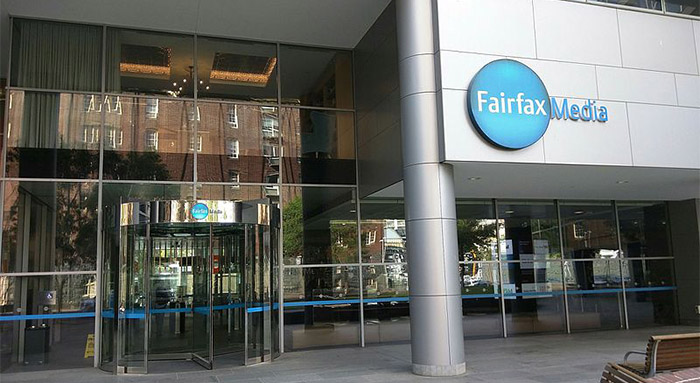
Fairfax Media building entrance by Maksym Kozlenko
Fairfax shareholders approved the spin off and partial listing of its digital real estate business Domain. The motion to split the company was passed with a vote of 99.89% with no questions from assembled shareholders, and the decoupling was completed in november.
Meanwhile, Fairfax announced plans to shut six Sydney community newspapers and Fairfax Chief Executive Greg Hywood said “cost discipline” would continue both in the company’s metro and New Zealand operations as it continues to deal with declining markets outside Domain.
Questions over the future of Huffington Post Australia
The future of The Huffington Post Australia is in doubt after fairfax ended its joint venture with the owner of the digital news service, AOL. A spokesman for HuffPost Australia said it would operate a standalone Australian edition from December with a smaller local team, adding: “If redeployment isn’t possible, regrettably redundancies will occur.”
Murdoch says his newspapers are struggling
Speaking at the News Corp AGM, Rupert Murdoch hailed the Times, the Australian and the Wall Street Journal as successes but said the company has its hands full making print viable. In response to a question about the company potentially purchasing more newspapers, the 86-year-old News Corp executive chairman said: “Not really. No. Our hands are pretty full making our existing papers viable. I think the big three successes we have are the three big national papers: the Wall Street Journal, the Times in London and the Australian. The other papers, a lot of them are still very viable, but they are struggling.”
As if to illustrate the point, the Australian said its digital sales now account for more than half of total sales for the masthead after a pick-up in digital growth over the past year, while print sales fell “slightly”, and News Corp said it will scale back the frequency of the manly daily to two editions a week.
Ten exits the ASX, ending two decades as a listed company
Ten’s time as a publicly listed company came to an end, after its acquisition by CBS past the final regulatory hurdle. After nearly two decades as a listed company and three months after CBS announced the takeover, ten was removed from the australian stock exchange in November. The network was bought by CBS after falling into administration.
ACCC to probe Google and Facebook over market power
The government directed the Australian Competition and Consumer Commission to undertake an inquiry into the role of technology giants including Google and Facebook in spreading fake news stories and diverting advertising away from traditional media. Public and private hearings will be held in 2018 and a preliminary report will be prepared by December, with the final report anticipated in June 2019.
The ACCC also issued merger guidelines in the wake of recent changes to media ownership laws. The regulator said it will veto media mergers that reduce the amount of news or hurt advertisers, a position that seems unlikely to stand in the way of newspapers and TV networks merging. The guidelines show the regulator is aware of the big changes technology is making to the industry and that mediums that used to be completely separate now compete for an audience online.
Insights & Opinion:

© AdobeStock / Ingo Bartussek
Business Day contributing editor Michael Pascoe asks “what if murdoch is still foxing with disney?”
Emily Bell, director of the Tow Center for Digital Journalism at Columbia University’s Graduate School of Journalism, says Facebook’s news feed changes are bad news for democracy.
Guardian editor Katherine Viner says the digital journalism model is currently collapsing as Facebook and Google swallow advertising revenue.
Fairfax Media journalist Karl Quinn says the ABC restructure does little to fix the problems at the public broadcaster.
The Australian says the woes of the Huffington Post expose a broader digital revenue shortfall.
Quotable quotes:
“It’s important to me that when Max and August grow up that they feel like what their father built was good for the world.”– Facebook CEO mark zuckerberg, on changes to the company’s news feed algorithms.
“Our hands are pretty full making our existing papers viable.” – News Corp Chairman rupert murdoch, addressing shareholders at the company’s AGM.
“It is a sad day for both journalists and audiences when such a respected, long-running program ends,” MEAA director katelin mcinerney on the axing of Lateline.
“We are not ready for the technological onslaught that is about to hit us.” – ABC social media strategist flip prior speaking at a conference on publishing.
ASFA does it again
It’s feels like a growing trend that the annual ASFA conference is timed with a seismic event.
Twelve months ago I sat in the ASFA conference as the surprise and shock of the Trump election spread through the auditorium. This year, it was the announcement of a Royal Commission, not just into banks, but the broader financial services sector – including superannuation.
Good timing or bad timing, it’s still not clear, but the show (or in this case the world’s biggest pension fund conference) must go on.
With increased analysis and scrutiny set to be a clear focus in 2018, it was unsurprising a clear theme to emerge at ASFA 2017 was a focus on trust and brand.
And according to branding expert Martin Lindstrom, organisations need to better understand the heartbeat of their consumers. According to Lindstrom, this is difficult because 85% of what we do as an individual is irrational. However, if brands can better infuse emotions into dealing with individuals then they’ll be much more successful in creating a connection and fostering an advocate.
Spaceship and other new players were cited in a number of discussions as an example of one brand doing an especially good job of building trust—by aligning user experience with their expectation. But as journalist Sophie Elsworth pointed out on a confronting panel of media commentators, the general punter does not care about super. It is too far into the future and too confusing, so people switch off.
Compounding that confusion is the ongoing regulatory uncertainty that continues to plague the sector. In her address to ASFA, the Minister for Revenue and Financial Services, Kelly O’Dwyer said despite the announcement of the Royal Commission the Government planned to keep pushing previously announced policy reforms.
So above and beyond the Royal Commission, in 2018 we could potentially see legislation around the compulsory introduction of a minimum one-third independent directors on the boards of all super funds; new oversight to ensure greater transparency of how super funds spend members’ money; and the introduction of choice to the default fund system. With the Productivity Commission’s Competitiveness and Efficiency of the Superannuation Industry due to report mid-year and the Insurance Within Super Working Group developing a best practice code of conduct, and Government pushing a range of superannuation legislation through Parliament, 2018 promises to be another busy year (nee confusing year for members) for the superannuation and financial services sector.
What we’ll be talking about at ASFA 2018 in Adelaide is anyone’s guess.
It’s a Wrap – Honner’s quarterly media roundup (Q317)
What’s news?
The big can now get bigger: media law changes pass the Senate
After months of negotiation and delay, the government’s media reforms passed the Senate. The government secured the support of the Nick Xenophon Team and One Nation to pass the bill that scraps restrictions including the “two out of three” rule, which stops companies owning newspaper, radio and TV stations in the same city. The changes also abolish the “reach rule” which prevents a single TV broadcaster from reaching more than 75% of the population.
Essentially, the changes allow for big media companies to get bigger and open the way for a rise in mergers and acquisitions in the industry. The bill will need to pass the House of Representatives to become law, however that’s expected to be a process of rubber stamping given the government’s majority in the lower house.
Changes too late for Murdoch, Gordon: CBS lobs rescue bid for Ten
The changes come too late for Lachlan Murdoch and Bruce Gordon who had hoped the reform would allow them to take over troubled broadcaster Ten Network. Before the parliamentary debate concluded, US broadcasting giant CBS struck a rescue deal to buy Ten, putting paid to the plans of the Australian media moguls.
Gordon owns the WIN television network, while Murdoch, who is News Corp co-chairman, owns radio station Nova. Ten had been placed into voluntary administration in June after Murdoch—the network’s former executive chairman—and fellow creditor James Packer backed away from guaranteeing a new $250 million line of credit.
Gordon went down fighting, but his last-minute legal action to stop CBS was rejected by the Supreme Court of NSW and Ten creditors voted overwhelmingly in favour of the CBS deal days later. Still, it’s not over until it’s over. The CBS deal could face a legal appeal from Gordon and requires approval from the Foreign Investment Board.
Write-downs, losses and cost cuts: just another earnings season
It’s no easy environment that CBS is walking into, as recent financial results from rival local networks attest. During the August earnings season, Seven West Media and Nine Network both reported large losses courtesy of asset write-downs and a continued contraction in the free-to-air advertising market, as viewers continue to abandon broadcast TV for broadband options such as streaming services or social media.
Over in newspaper land, it’s no better. Rupert Murdoch’s News Corp announced it plunged to a US$643 million annual loss due to major write-downs of its U.K. and Australian newspapers. Its stable of Australian mastheads, which includes The Australian, Herald Sun and Daily Telegraph – had their book value slashed by nearly 40% to US$310 million.
The company flagged another round of cuts for the business this financial year, at least equivalent to the US$40 million carved out of the business last year. While the last lot of cuts included layoffs of 70 staff photographers and major cuts to production and sub-editing staff, News Corp’s new chief financial officer Susan Panuccio said the next tranche would predominantly focus on central, non-content related costs.
Fairfax takes drastic measures: reveals details of Domain split
Fairfax Media warned its revenues are down 4-5% on last year’s levels before revealing details of its plan to split off the only growth part of the business, its real estate advertising arm Domain. The separation will see Fairfax emerge with a 60% stake in Domain and reduced debt. The other 40% of Domain will be held by existing Fairfax shareholders.
The plan is driven by Fairfax’s belief that its share price doesn’t fully reflect Domain’s true value and that the stock is being unduly weighed down by concerns over its traditional publishing assets. Fairfax ramped up efforts to spin off Domain after US private equity firms TPG Capital Management and Hellman & Friedman abandoned moves to acquire the company.
Death by Google and Facebook: Senate committee hears the woes of public interest journalism
The Senate committee inquiry into the future of public interest journalism in Australia continued. In a series of heated exchanges, Senator Xenophon accused Google and Facebook of killing Australian journalism, saying they are making millions in advertising revenue at the expense of Australia’s democracy – claims both firms denied.
Launched after Fairfax Media announced its latest round of job cuts in May, the Senate inquiry has discussed the possibility of taxing news aggregators such as Google and Facebook and providing financial incentives in the form of tax breaks to encourage greater investment in journalism.
Appearing before the committee in August, Google unsurprisingly rejected the idea of a levy on aggregators to prop up Australian journalism, arguing it hasn’t worked elsewhere in the world. Google Australia Managing Director Jason Pellegrino told the Committee consumers are to blame for the woes of journalism because they are changing the way they consume news.
The spread of fake news and what Google and Facebook are doing about it was another source of contention. Facebook Australia’s head of policy, Mia Garlick, said Facebook is tackling fake news by removing accounts that exhibit suspicious behaviour rather than because of the nature of their content. Senator Xenophon accused Facebook of not acting fast enough to stamp out fake news.
It was dog eat dog among the media with Fairfax Chief Executive Greg Hywood blaming the ABC for using taxpayer dollars to steal the newspaper’s audience, while conservative think-tank Institute for Public Affairs called for the public broadcaster to be privatised.
The Committee is due to present its recommendation in a final report by Dec. 7.
Insights:
Australians are worried about fake news, but not willing to pay
Deloitte’s sixth annual Media Consumer Survey found Australians remain overwhelmingly reluctant to pay for online news, with only 10% of respondents willing to do so. The reluctance comes despite concerns over the accuracy of news. The survey found 65% of respondents who access news through online sources are concerned about being exposed to “fake news” and 77% believe they have been exposed.
Newspapers still the most trusted for advertising; social media the least
Despite the omnipresent shift in advertising from print to online, a survey by AdTrust found that newspapers are still the most trusted platform for advertising. The study, commissioned by publishing industry body NewsMediaWorks, found that an audience’s trust in ads is greatest in newspapers, followed by cinema, radio, magazines and digital news media. Ads in social media are the least trusted, followed by search engines and any other websites.
Quotable quotes:
“Is the requirement for ‘fair’ and ‘balanced’ coverage designed to give voice to white supremacists, holocaust deniers, climate change sceptics and anti-vaxxers?” – Labor communications spokeswoman Michelle Rowland after One Nation leader Pauline Hanson called for the ABC to insert the words “fair and balanced” in its charter.
“We’ve built extremely strong and very appropriate laws to govern media. All of them, unfortunately, are completely irrelevant for the era we are about to enter.” – Melbourne Business School adjunct professor Mark Ritson addressing the Senate committee inquiry into the future of public interest journalism.
“The digital disruption that has transformed the media has shaken everything we knew about our industry. There is no certainty.” – the Media Entertainment and Arts Alliance in its submission to the Senate committee inquiry into the future of public interest journalism.
“We are in an era where integrity is priceless. Yet digital distributors have long been a platform for the fake, the faux and the fallacious (and) have eroded the integrity of content by undermining its provenance.” – News Corporation Chief Executive Robert Thomson addressing investors after the company announced a US$643 million loss.
Honner finalist in The Holmes Report 2017 Asia-Pacific Corporate PR Consultancies of the Year
2017 Asia-Pacific Corporate PR Consultancies of the Year
The 2017 Asia-Pacific PR Consultancies of the Year are the result of an exhaustive research process involving more than 100 submissions and meetings with the best PR firms across the region. Consultancy of the Year winners are announced and honoured at the 2017 Asia-Pacific SABRE Awards, taking place on 14 September in Hong Kong.
Finalist
Honner (Australia/Independent)
A veteran of respected UK communications agency Fishburn, of Australian institutional investment journal Super Review, and of the banking sector in both the UK and Australia, Philippa Honner launched her own communications firm in 1997 and has built it into the leader in the financial services sector in Australia, with a team of close to 20 in Sydney (there are plans for an additional office in New York) serving a client portfolio that includes big-four bank NAB, $55 billion superannuation fund UniSuper, and the world’s largest listed hedge fund manager Man Group. A wealth of new business from clients such as Franklin Templeton, MoneyTree, Plato, Antipodes, Quantifeed, Bell Direct, PM Capital, bfinance, and Antipodes helped fuel healthy growth last year.
Honner was recognized at the Financial Standard MAX Awards as PR Agency of the Year in 2016, having earlier been voted Australia’s best agency by financial journalists, and it has built a reputation for thought leadership in the sector—and the media environment in particular—and partnering with international specialists to bring a global perspective to clients. In terms of expanding capabilities, Honner forged a strategic partnership with digital agency Spark Green to build websites and digital platforms to assist in content-led campaigns.
Last year, the firm provided Australian communications activity for the global announcement of the proposed merger between Henderson Global Investors and Janus Capital; was engaged by fund manager Antipodes Partners to manage the launch communications for its first listed investment company; and worked with Australian Ethical, the oldest and most successful ethical investment manager in Australia, to support its next phase of growth.
Other finalists include Allison+Partners (MDC Partners), APCO Worldwide (Independent), Citadel-Magnus (Australia/Independent) and SPRG (Independent).
20 years young – celebrating two decades as pioneers in financial communications
This week, Honner celebrated its 20th birthday with almost 200 clients, journalists, staff and friends. It’s been a long but fulfilling journey, and Honner is deeply appreciative of those who joined us to celebrate – and helped us get to where we are today!
As Founder Philippa Honner noted in her speech – it’s been a tremendously rewarding experience growing the business from a dynamic one-man band in 1997 to the largest communications agency specialising in financial services today.
A night to remember at The Mint in Sydney, Honner marked the occasion with a number of exciting announcements.
The team is thrilled to reveal our plans to establish a New York marketing office to drive business development efforts in offshore markets – sourcing global clients to be supported in Australia by the Sydney-based team.
Closer to home, Honner also announced a strategic partnership with website and digital agency Spark Green, an agency that also specialises in the financial services sector. Honner is working with Spark Green to help clients build user-friendly websites and digital platforms to support content-driven campaigns and help financial brands better engage with their audiences.
To support our fast-paced growth, Honner also announced four senior appointments at the milestone event.
Senior Consultants Suzanne Dwyer and Michael Yiannakis both bring over 25 years’ communications experience to the team.
Suzanne started her career in agency at Edelman and has held senior roles with ANZ, EY and Swiss Re. She has also run her own business, providing strategic communication advice to executives in the finance, education, pharma and power sectors.
Michael was a long-time business journalist at The Wall Street Journal in Hong Kong and The Australian Financial Review in Sydney and prior to joining Honner also worked as Head of External Affairs and Media Relations, Asia Pacific, for American International Group.
Honner is also building out its content capability, with the recent appointments of Rebecca Thurlow, previously from the Wall Street Journal, as Senior Writer. Amanda Taylor, who brings 17 years financial writing experience, including seven years in marketing communications and digital roles at AMP Capital, has also joined Honner’s content team
It certainly is an exciting time for PR in a changing industry, and as the demand for specialist advice in the fast-moving Australian financial sector grows, Honner looks forward to partnering with our clients to deliver a leading offering.
Here’s to the next 20!
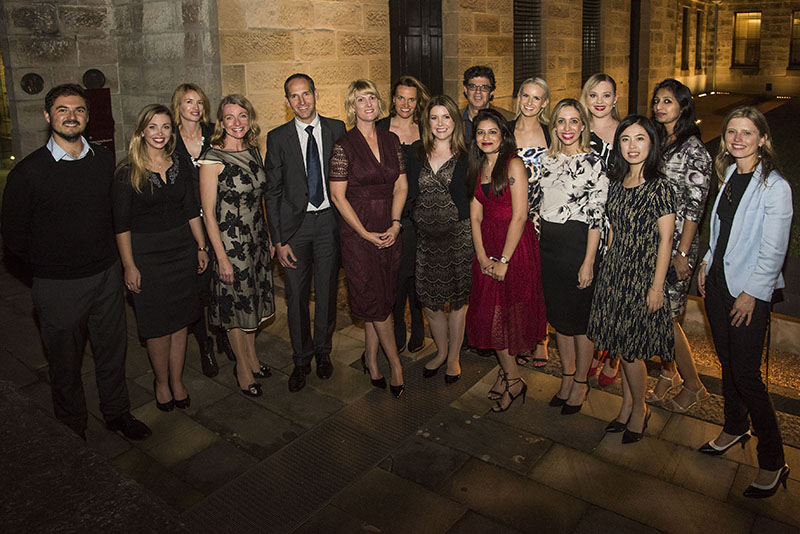
The Honner team

Our clients, journalists, staff and friends.
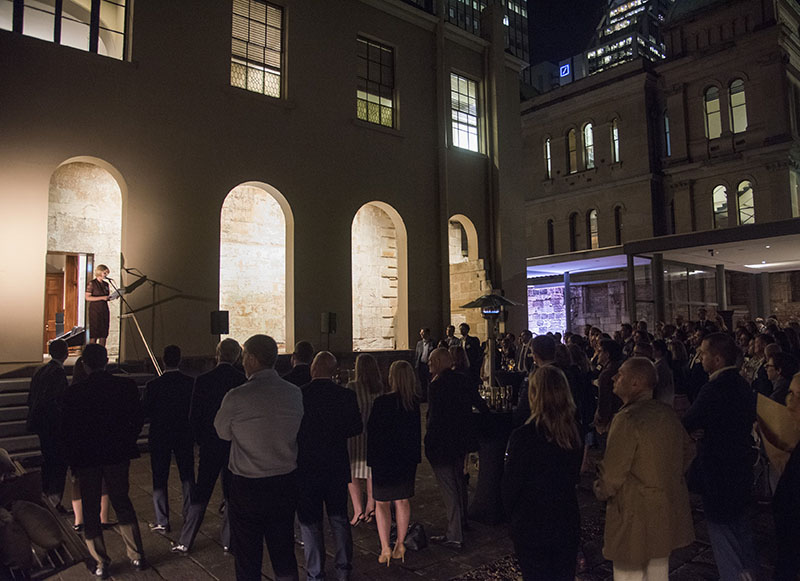
Philippa Honner’s speech
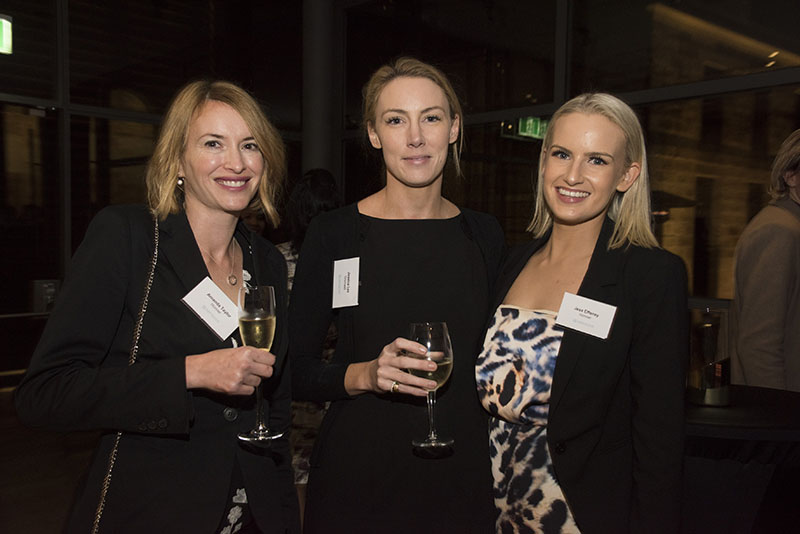
Amanda Taylor (Honner), Jessica Lee (Cromwell) and Jessica Effeney (Honner)
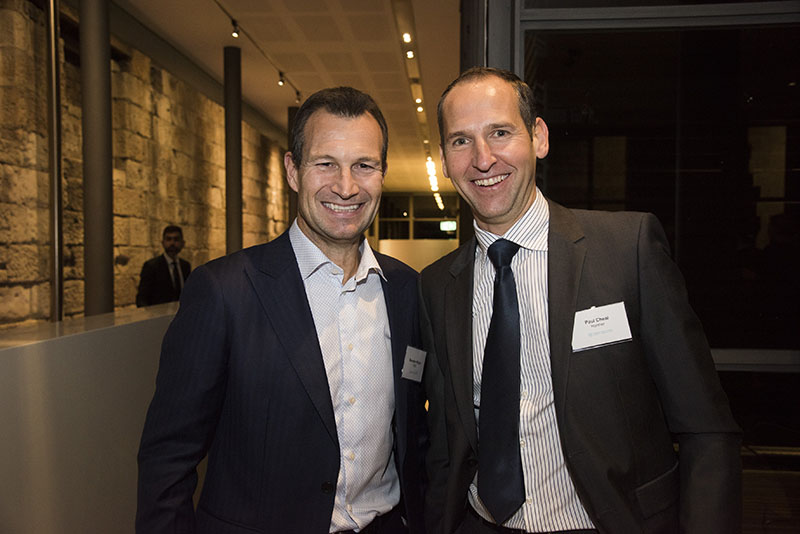
Brendan Wright (FAST) and Paul Cheal (Honner)
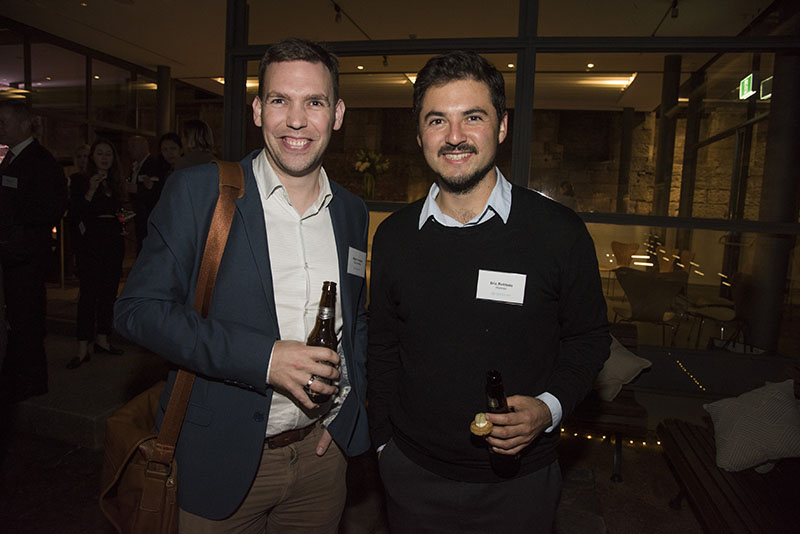
Adam Zuchetti (My Business) and Eric Robledo (Honner)
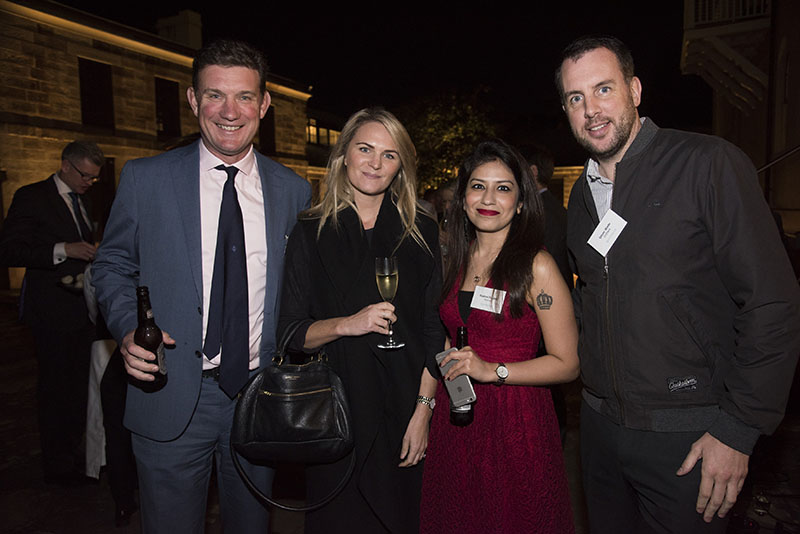
Cameron Poolman (OnDeck), Charlene Baston (OnDeck), Rashmi Punjabi (Honner) and Oliver Wade (OnDeck)
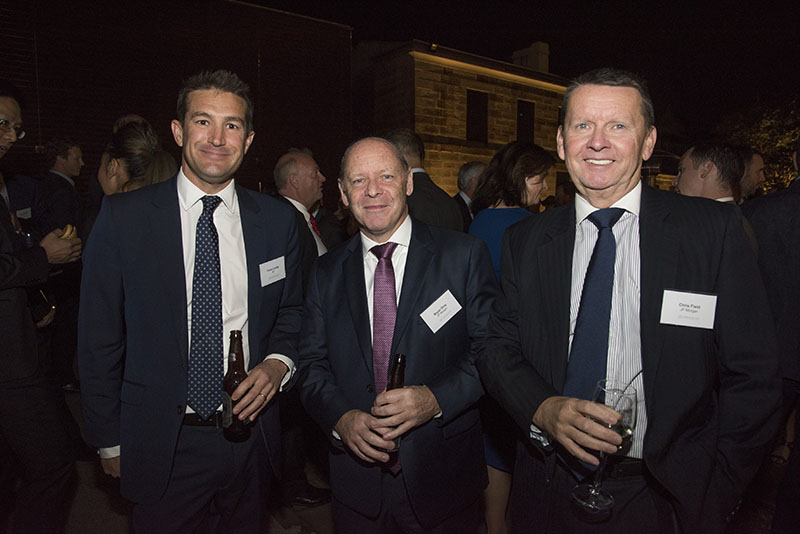
Chirs Lumby (BT), Bryan Gray (JP Morgan) and Chris Field (JP Morgan)
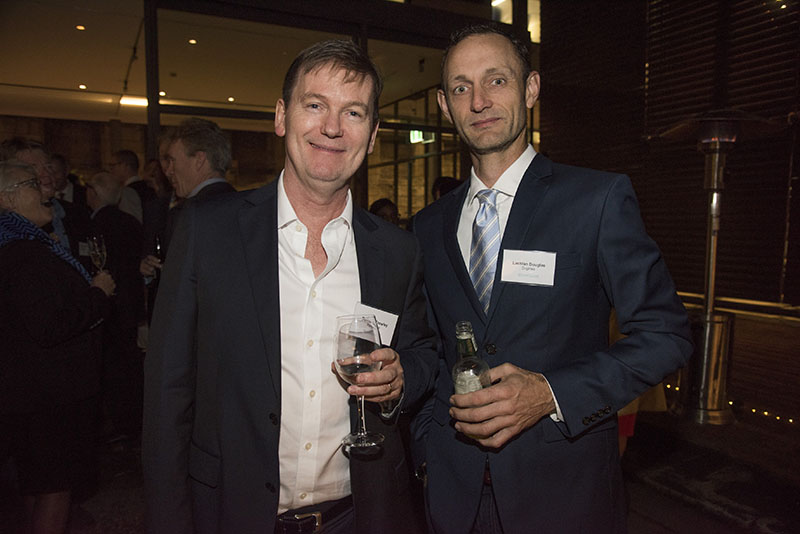
Damian Crowley (Pengana), Lachlan Douglas (Engines)
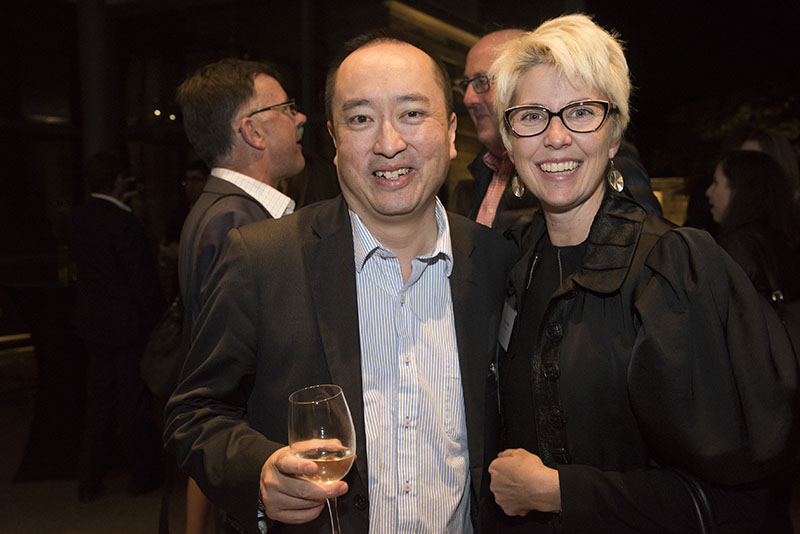
Darin Tyson-Chan (Benchmark Media) and Kristen Allen (Perpetual)
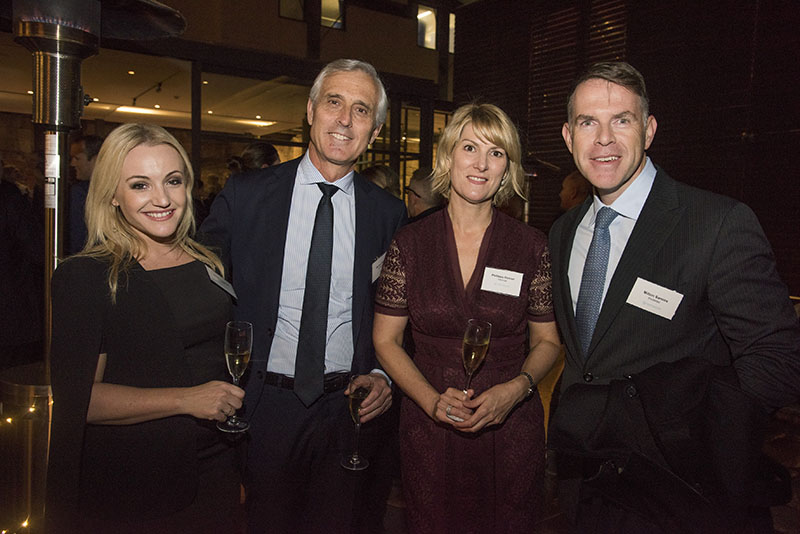
Jacqui Marshall (Investec Australia), Michael Clarke (Challenger), Philippa Honner (Honner) and Milton Samios (Investec Australia)
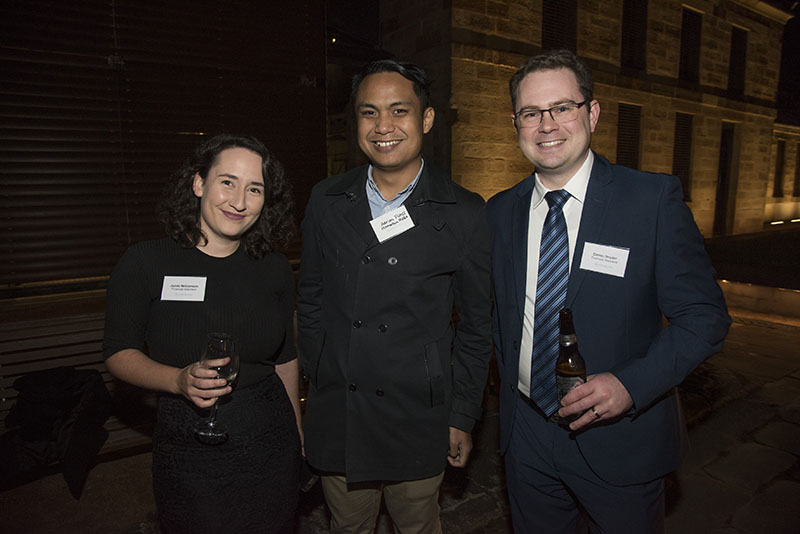
Jamie Williamson (Financial Standard), Adrian Flores (Momentum Media) and Darren Snyder (Financial Standard)
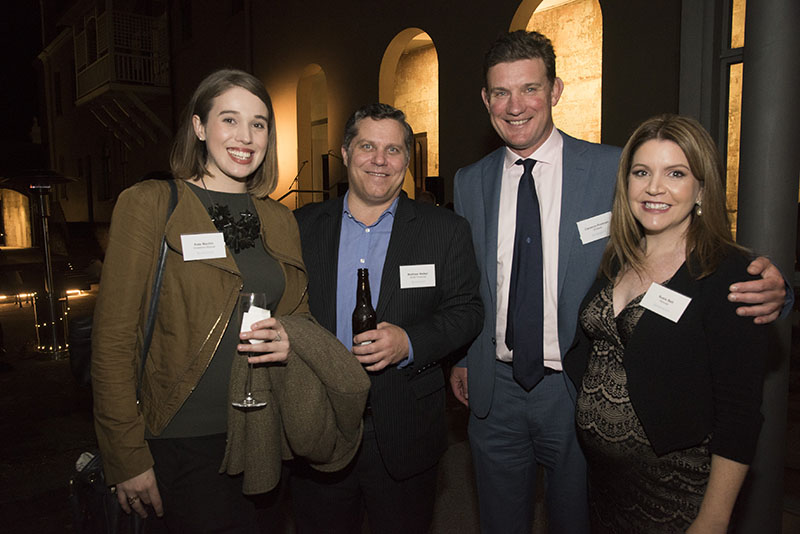
Kate Machin (Investors Mutual), Matthew Walker (WLM Financial), Cameron Poolman (OnDeck) and Susie Bell (Honner)
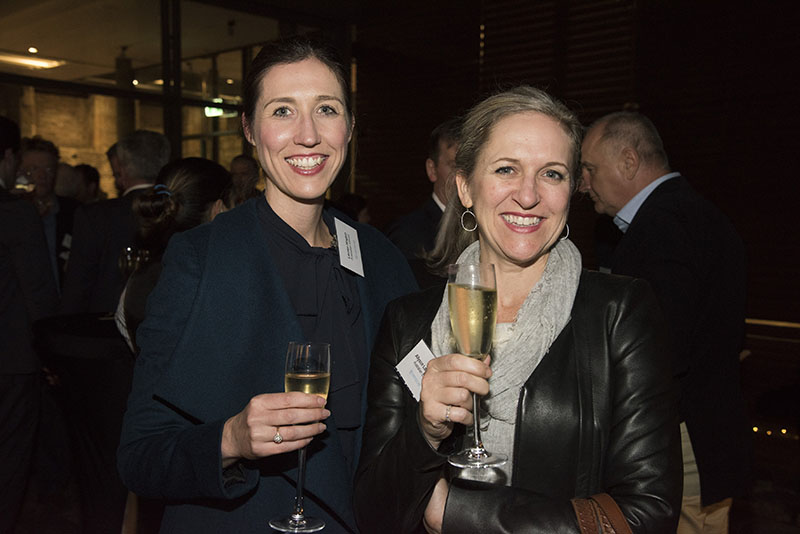
Lauren Hogbin (Australian Ethical) and Allyson Lowbridge (Australian Ethical)
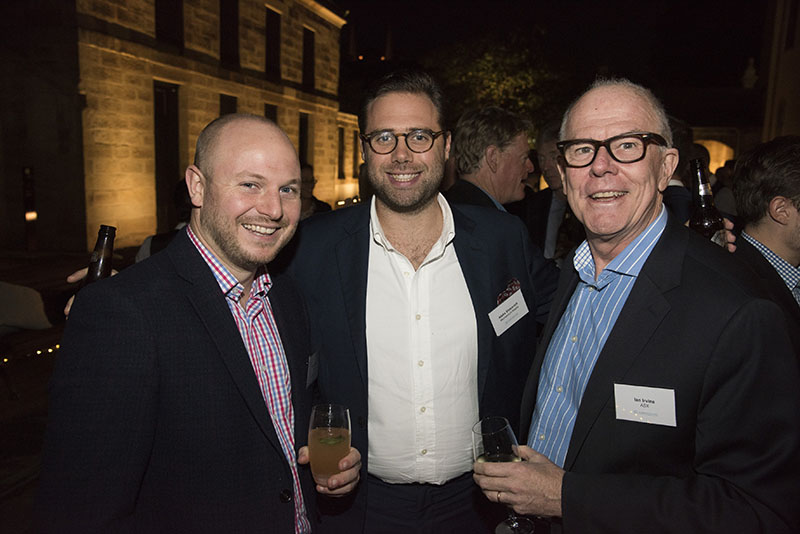
Mark Smith (FSC), Aleks Vickovich (Momentum Media) and Ian Irvine (ASX)
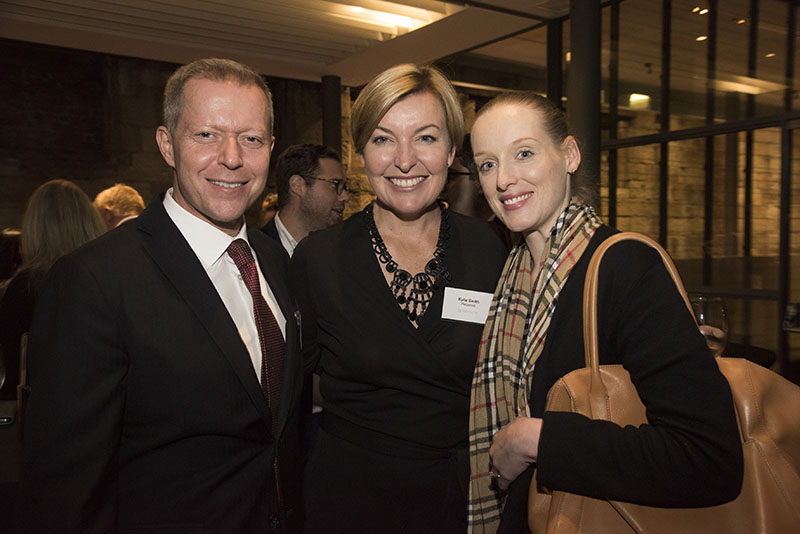
Matt Dell (Pinnacle), Kylie Smith (Perpetual) and Natasha Gilbert (Pinnacle)
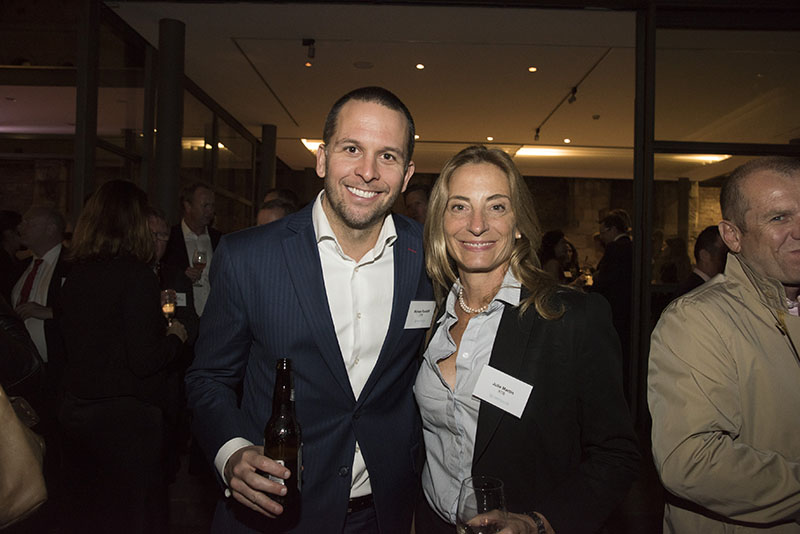
Michael Rockliff (XTB) and Julie Martin (XTB)
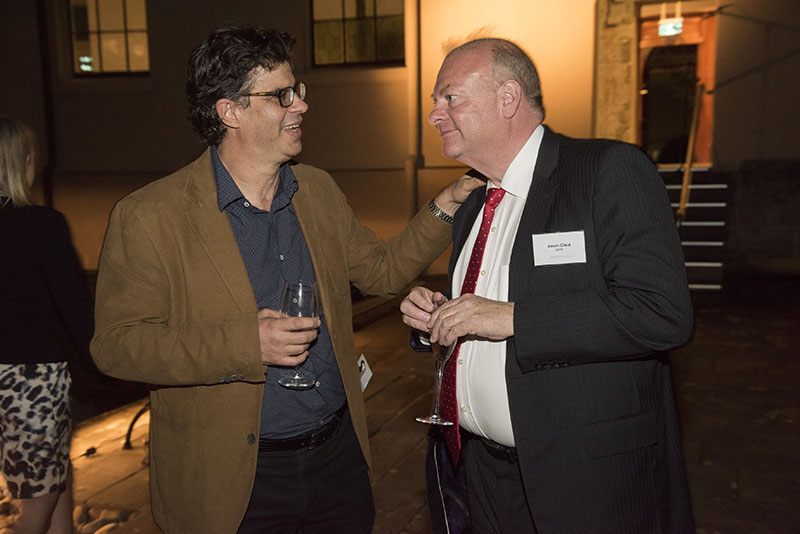
Michael Yiannakis (Honner) and Jason Clout (AFR)
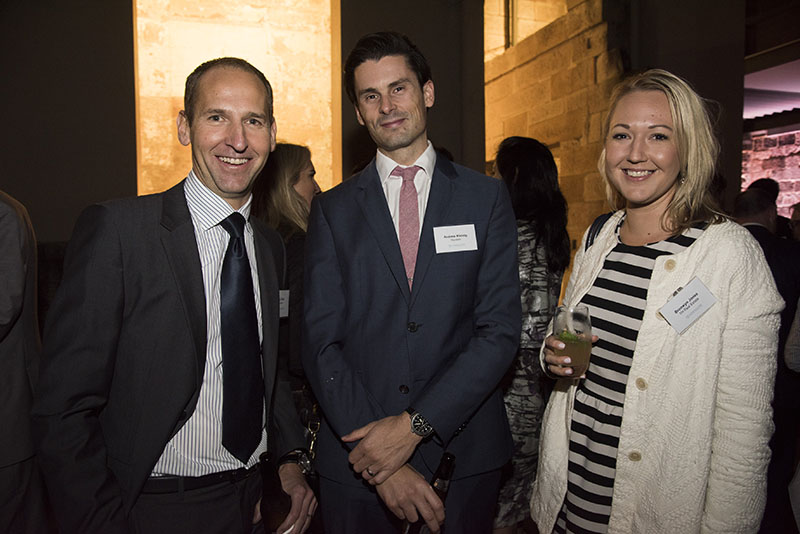
Paul Cheal (Honner), Andrew Kleinig (Nuveen) and Bronwyn Jones (TH Real Estate)
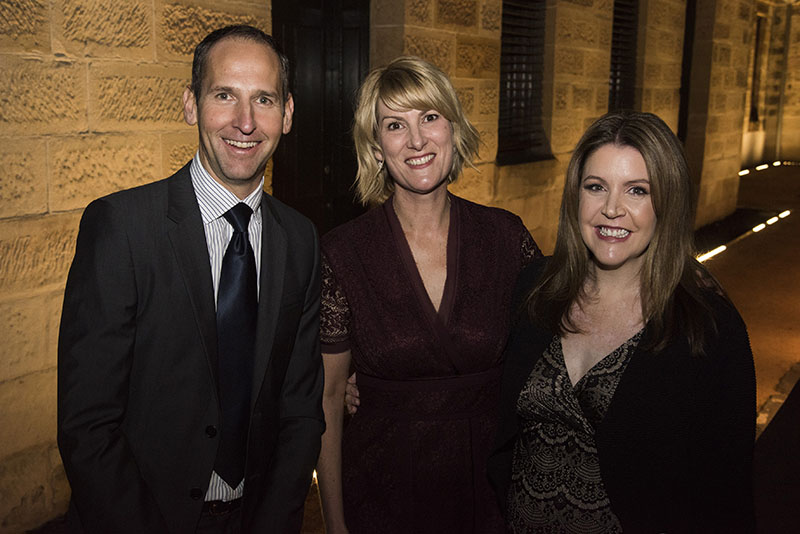
Paul Cheal (Honner), Philippa Honner (Honner) and Susie Bell (Honner)
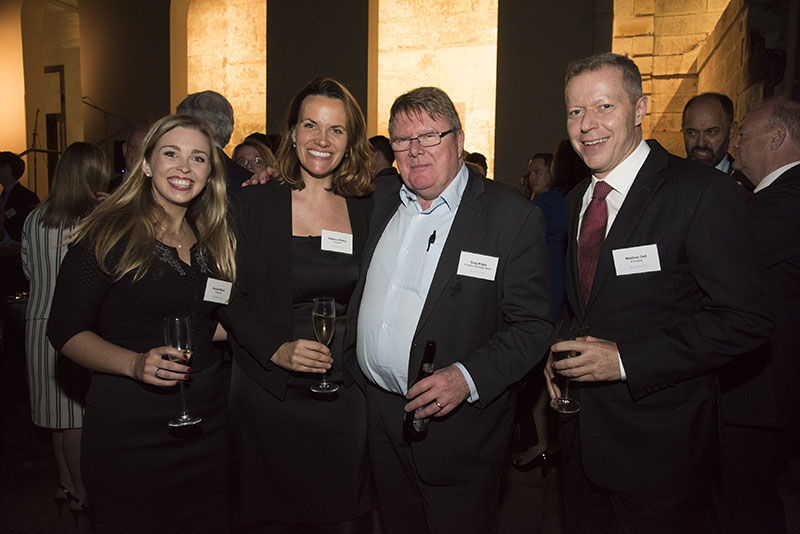
Rachel Maher (Honner), Rebecca Piercy (Honner), Greg Bright (Investor Strategy News) and Matthew Dell (Pinnacle)
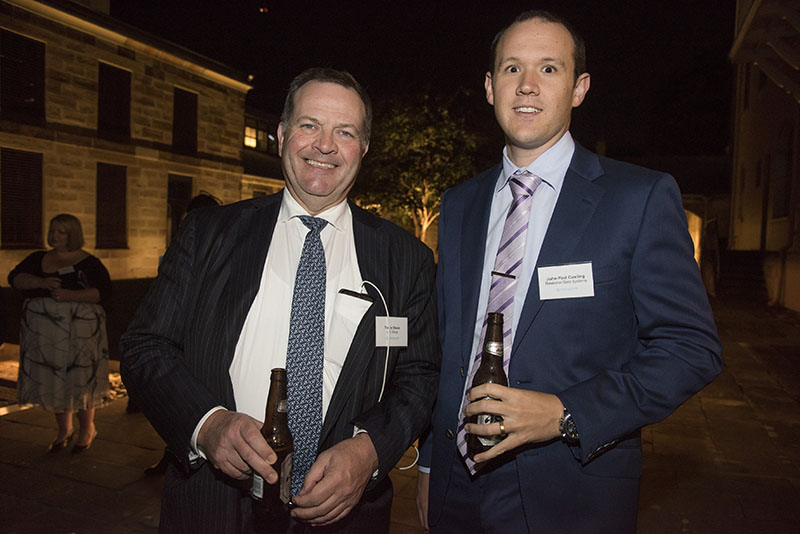
Trevor Dixon (Link Group) and John-Paul Cowling (Relational Data Systems)
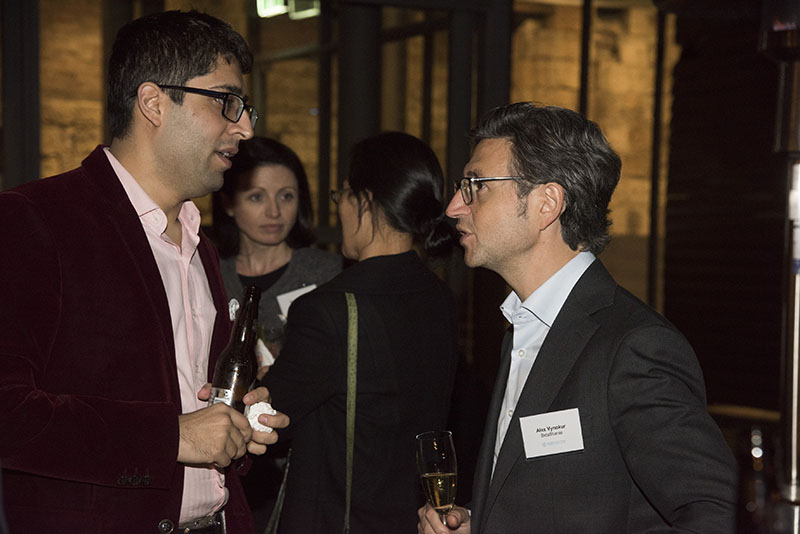
Vishal Teckchandani (NAB Trade) and Alex Vynokur (BetaShares)
AltFi Australasia: online lenders a growth driver for the fintech sector
Australia is in the midst of an alternative lending growth spurt. Awareness among consumers is currently lower than other countries, but we are catching up, the market opportunity is huge and the number of players is growing rapidly.
This was the take-out from the AltFi Australasia conference that Honner attended on Monday 27 February, supporting our client OnDeck, the major sponsor.
In between managing interviews with OnDeck’s Australian CEO, Cameron Poolman and SVP International, Rob Young, the Honner team sat in on several interesting presentations.
The overarching theme was of an industry that is growing fast because it’s meeting the needs of both customers and investors. Customers love the ease and speed of dealing with fintech lenders, and are increasingly looking beyond the ‘slow no’ of a bank to access cost-effective funding.
Investors in the Peer-to-Peer lending space are responding positively to an emerging asset class that goes beyond traditional fixed income or debt products, delivering diversification and returns.
As part of the Global Fintech PR Network, Honner is closely connected to online lending and we are watching keenly as it grows. We are excited to help drive awareness of an innovative sector that is harnessing technology to create a better customer experience.







